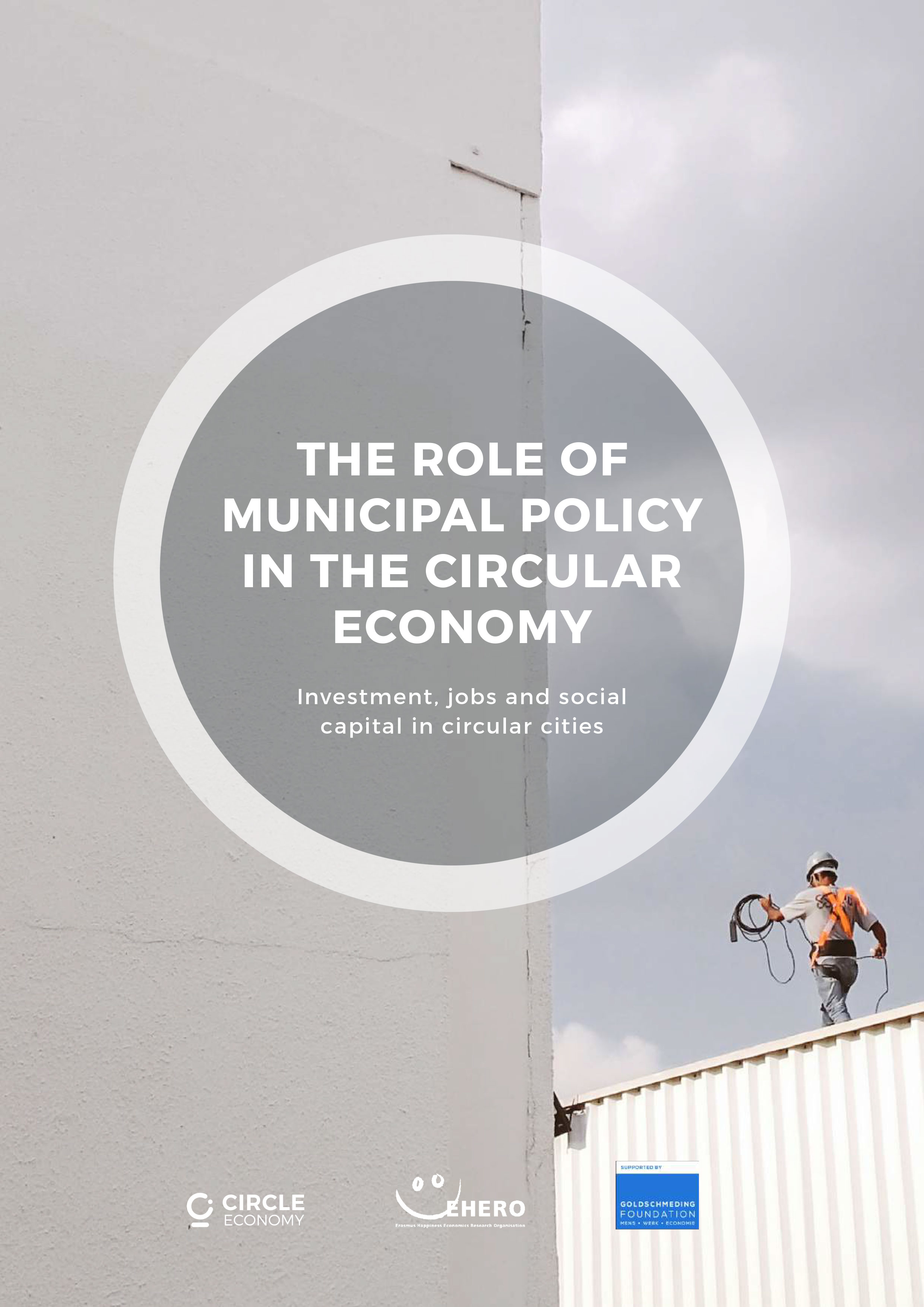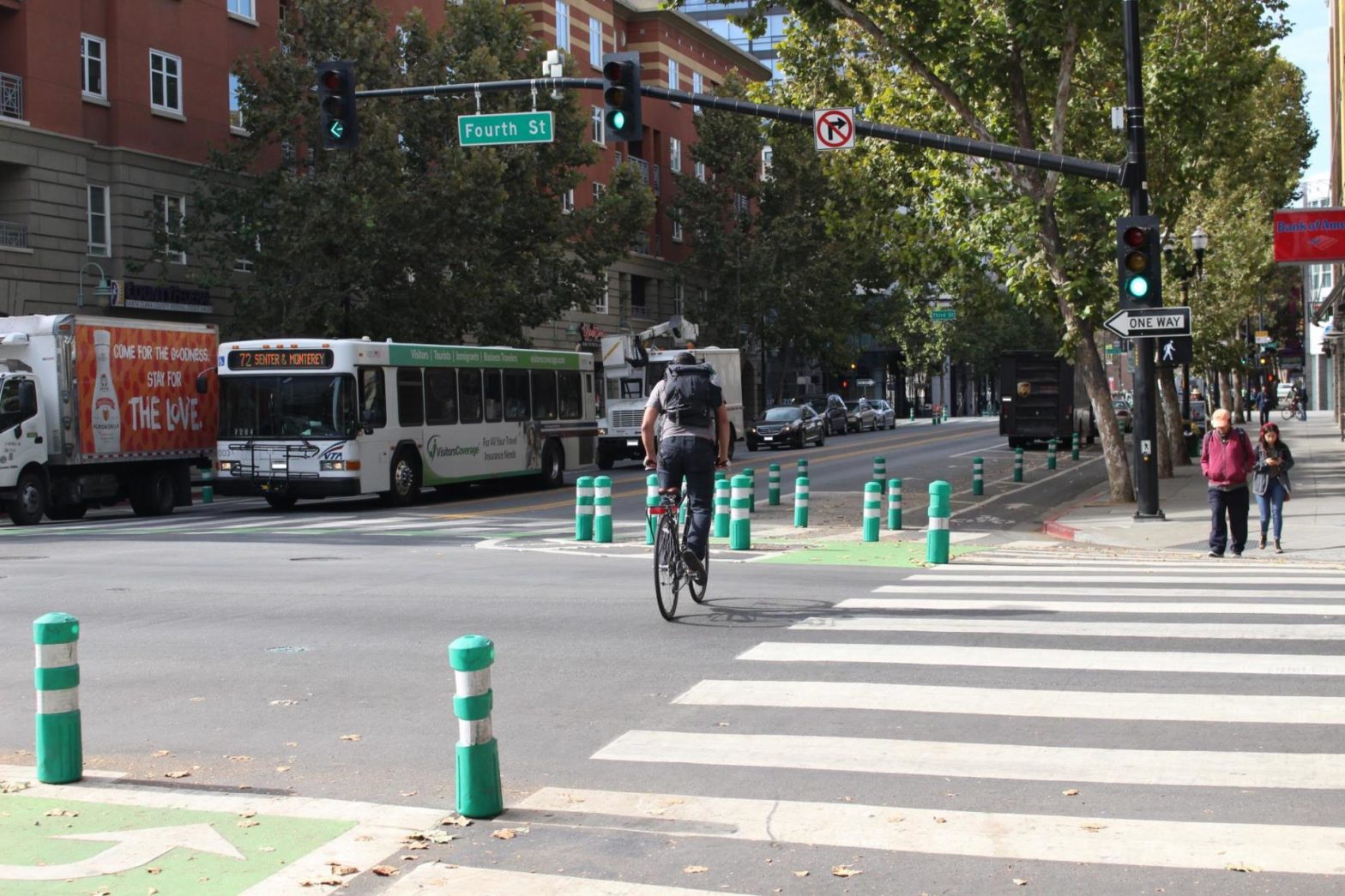
Photo: joke_1500x1000px-1
Circular cities: transforming rhetoric into reality
12 July 2019
by Jonathan Andrews
By Joke Dufourmont*, Lead Jobs & Skills Programme, Circle Economy
Across the world, 740 jurisdictions spanning 16 countries have now declared a climate emergency. It’s a huge statement of intent but we have yet to see the introduction of robust policies to make the rhetoric a reality.
An essential next step for city leaders and urban policy makers will be creating a circular economy to underpin those declarations and encourage us to live within our means.
As well as countering the depletion of natural resources, climate change and environmental degradation, a circular economy can bring jobs, investment and social capital, making cities more competitive and, crucially, more resilient.
 At Circle Economy, a Dutch social enterprise advocating the circular economy, we launched a new report, The Role of Municipal Policy in the Circular Economy, based on a study of more than 40 European cities.
At Circle Economy, a Dutch social enterprise advocating the circular economy, we launched a new report, The Role of Municipal Policy in the Circular Economy, based on a study of more than 40 European cities.
We identified three common practices adopted by municipalities across Europe that not only encourage and support circular economy practices, but also result in tangible socio-economic benefits for the city and its people.
Collaboration is key
The cities that have been most successful in developing a circular economy developed shared societal and environmental objectives, providing strategic direction to all stakeholders in the city and encouraging long-term thinking and collaboration over short-term budgeting.
The city of Malmö in Sweden invited over 100 companies to inform the development of a fossil-free 2030 roadmap. By engaging contractors, banks, suppliers and construction companies, Malmö was able to synchronise thinking around circularity and resource efficiency in the construction sector. Stone wool insulation company Rockwool testifies how this has made it significantly easier for the stakeholders in the local construction chain to find project partners that share the long-term thinking that is required to transition to circularity.
Leverage economic support
Financial injections and public procurement are vital to help circular initiatives establish a business, service immature markets and take office in a city.
The city of Amsterdam has provided financial assistance to businesses in the circular economy through loans and subsidies. One of those loans, combined with a reduced rent, has allowed Door architecten to establish an office in the city. Thanks to this support, their offices are not only centrally located, but also a prime example of circular construction as they are made from recycled, reusable and bio-based materials. The continued attention to circular criteria in tenders from municipalities across the Netherlands has allowed the architecture practice to expand their portfolio of projects and further pursue circularity in their work.
Employ soft policy instruments
Building strong networks and sharing information across a city can raise the knowledge levels of local stakeholders by boosting human and social capital.
The London Waste and Recycling Board supports SMEs that want to make their processes more circular through their Advance London Business Support Programme. ToastAle, a brewery which transforms surplus bread into beer, benefited from an analysis of their production process and gained valuable access to a business network, helping them to raise the profile of their product and mission.
“In London we know that cities can be a powerful force for change–particularly global capital cities like ours. We refer to them as the ‘engine room’ of the circular economy.
With the right policy and investment conditions in place, cities can attract innovators and entrepreneurs who create the business models, products and services needed to accelerate our transition; and our own analysis shows that circular economy in the capital will create new jobs, both in the short and long term.
In the face of a climate crisis which will affect all of us, we have to be using all the levers at our disposal to make this happen, right now–and we know that cities are more agile, and can move more swiftly, than national governments or international bodies to make circular economy a reality.”
– Wayne Hubbard, Chief Executive Officer of the London Waste and Recycling Board
Governments can use the circular economy to ensure the inclusive and sustainable development of their cities, but they must put the right practices in place as a matter of urgency to help us avoid the worst impacts of the climate emergency they have declared.
*Joke Dufourmont leads the Jobs & Skills Programme at Circle Economy, an impact organisation that connects and empowers a global community to create the conditions for systemic transformation.











